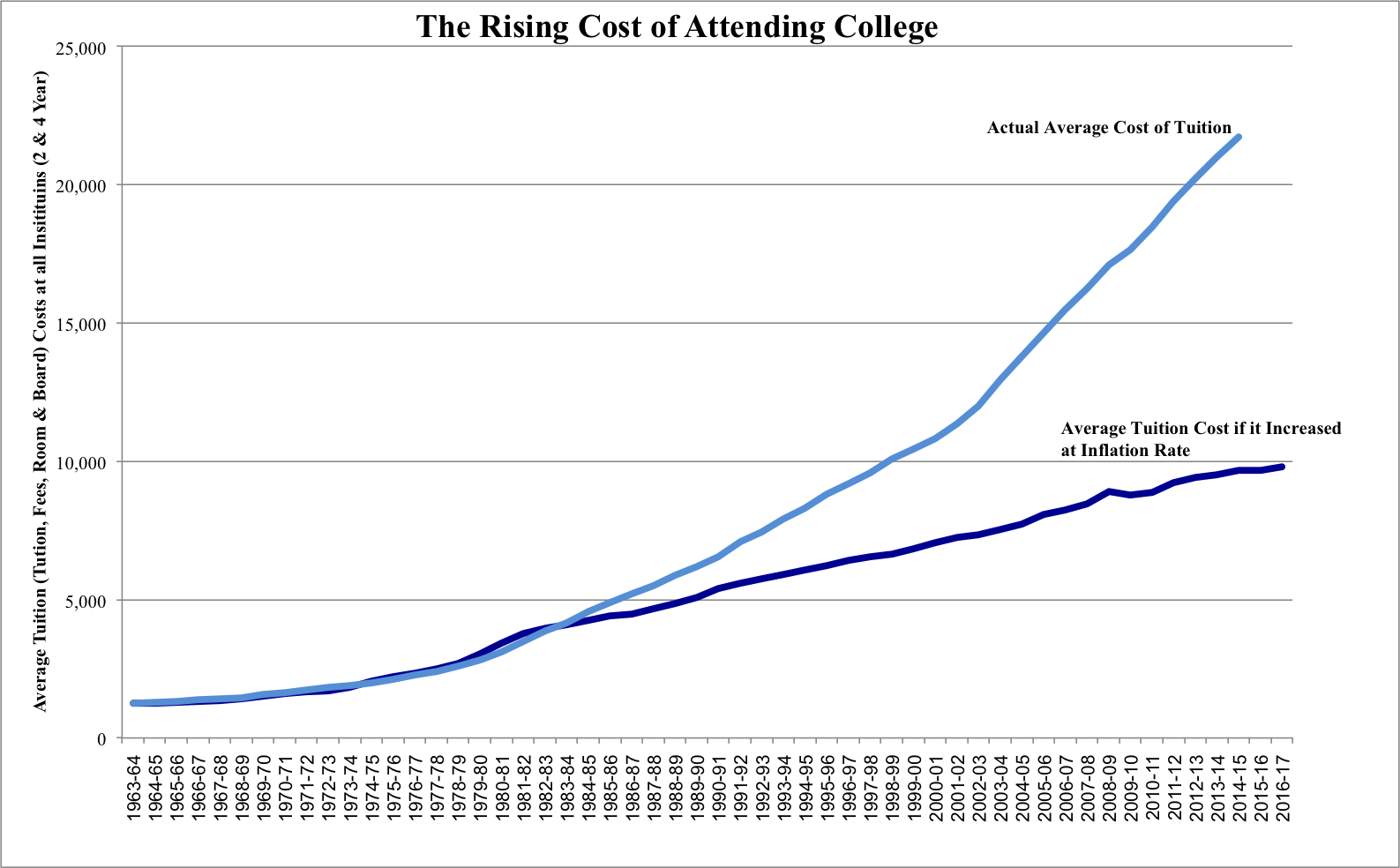I grew up in the ’80’s and was told my entire childhood that everyone needed to go to college or you’re a loser. If you want to be successful, college needs to be part of the plan. This has historically been true, on average. 1 Study and get good grades in high school, go to a good college, study and get good grades so you can get into a good graduate program. Graduate and get an incredible job!
If you don’t follow that path, you’ll end up being a garbage man.
I said above it’s been historically true, on average. That doesn’t mean it’s been true for everyone and each year it becomes a bit more untrue. More on that below.
I bought into the notion that everyone must go to college to avoid destitution. I believed in education and still do. I have an honors B.S in Finance and an MBA. Nearly everyone in my family has a couple of degrees. We believe in education. I was even an adjunct MBA professor. However, the way we educate our families is changing and the system isn’t keeping up. It’s becoming more expensive by the year, even as it becomes more outdated.
It should be noted that literacy and education level around the world has continually gone up for the past 200 years, which is incredible. Gender equality has also leveled up in most of the developed world. In fact, in the U.S. more women graduate than men. For an in-depth look at the state of global education, read the data in The Global Rise of Education and the trends in Tertiary Education. Some amazing graphs in both papers.
Is college worth the money?
I started to wonder about the value of college pretty much immediately after starting. I tested out of the first year and a half, so started mid-way through my Sophomore year. During my first year of classes every time I registered for more classes, I wondered when I’d be able to start taking classes for my major. Before I could take my first business class, I had to first take psychology, biology, astronomy, a year of Western Civilizations, etc. What are commonly referred to as “generals.”
I actually loved all those classes since I love to learn, but I was paying for the pleasure! That model hasn’t changed much, even with the invention of the internet. Now, if I want to learn about astronomy, I can listen to amazing podcasts and watch endless YouTube videos (which I do regularly). All free.
Times have changed. It turns out you don’t need to take astronomy and biology to be successful in business or in life and you can learn in a lot of different ways.
The fact that success doesn’t always come from a degree first become clear with the publication of the book, “The Millionaire Next Door,” which turned on its head the idea of what a wealthy person looks. (Hint: it’s not the doctors and lawyers, it’s people who consistently save their money and/or start businesses who become financially independent).
I saw this first hand during the years I worked as a financial planner. My wealthiest clients had businesses most people make fun of, like one of my best clients who had an HVAC business and another a used car lot. Your neighbor who never went to college and has been a housing contractor for the past 20 years, may have a higher net worth than you.
The college experience
But what about the “college experience?” Aren’t we suppose to go to school to find ourselves and figure out what we want to be when we grow up? That’s an expensive way to find yourself. In the globally competitive job market, we just don’t have that luxury. There are students in China and Japan studying around the clock to clean yours.
So should everyone go to college? Nope. Is a degree necessary? Depends on what you want to do. Doctor, lawyer, CPA, etc. Yes, of course. You have to have a degree for those professions.
If you don’t know what you want to do and you’re figuring it out, then don’t go to college. Figure it out in high school if you can, but if you still don’t know, get a job or multiple jobs and internships or do a gap year and figure it out before you start paying for classes you may not need.
Ripe for disruption
It’s no secret that the cost of college rises every year, even as it gets more outdated. When costs rise faster than inflation and 8 times faster than wages, it’s an industry is ripe for disruption.2 That’s higher education.

How do schools get away with raising prices every year? People keep paying for it. Of course, they pay for it by taking out every increasing amounts of student loans. Now the U.S. government is talking about loan forgiveness programs or even “free” college, which tax payers will pay for. That will only make the problem worse since it won’t do anything to bring down the cost of education.
To make matters worse, there’s the phenomenon of the education arms race. Masters degrees are now as common as undergrad degrees were in 2006. 3
College and post-graduate degrees have become so plentiful that they’ve become the new standard for most jobs. That doesn’t mean that people are more educated. Just having a degree doesn’t make you necessarily more qualified. It means it has become easier to take on debt to pay for college. Remember the 2008 financial crisis that partly occurred due to cheap debt where banks loaned anyone money and anyone who could buy a house bought five? Sound familiar?
The only thing keeping education prices high is parents and teachers telling kids they all need to go or they’re losers, without looking at other options.
What’s next?
What are the solutions then? First of all, let’s teach kids about all the options and not tell them they must go to college. It’s not for everyone and that’s okay. You can be highly successful by not going to college. By skipping college or learning skills a different way, students don’t go into debt and can get into the workforce faster.
There are a lot more educational options now than there used to be. This is the main reason I opted for saving money for my kids using an UGMA, rather than a 529. An UGMA is a trust that can be used for a lot more than just college. It can be used for any education-related expense, which is a pretty broad category. That seems right to me because education can come from a lot of different places and that category will continue to expand.
Most of all, remember that we can learn on our own, Goodwill Hunting style. We have the Internet, which is full of useful courses. Most top universities now offer open classes so you can sit in on their best classes, just like all the students paying hundreds of thousands of dollars. I’ve learned a lot of things this way, including an Astronomy class and learning several languages.
Students don’t have to go into debt and spend 4 to 8 years of their lives to get an education. Once students realize this and act en mass, higher education will be forced to adjust faster than they are now. By then it may be too late; students will have moved on and I hope they do.

